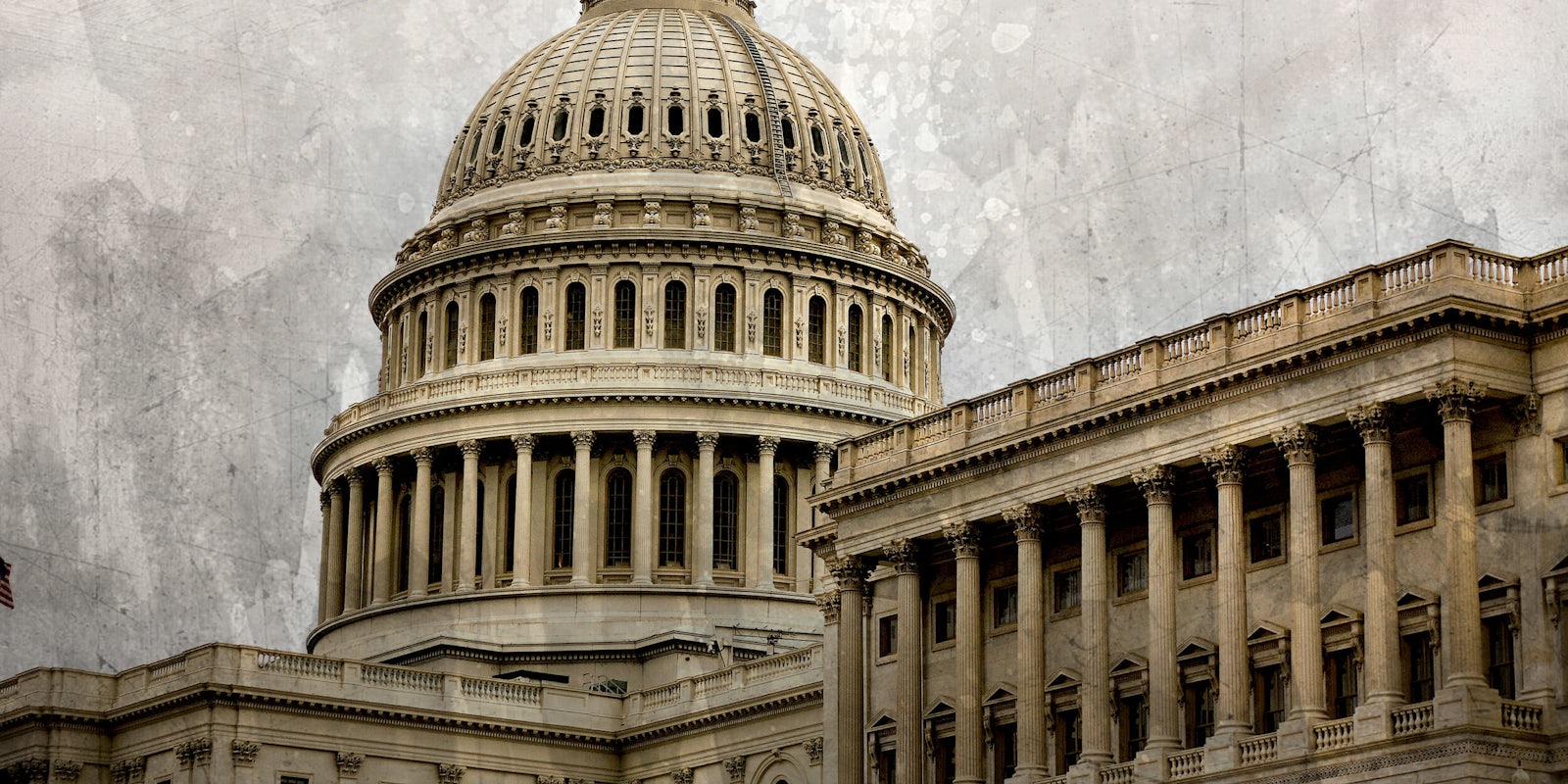If Congress doesn’t manage to pass a spending bill by midnight on Jan. 19, the United States could be headed for the first government shutdown of the Trump administration.
How did we get to this mess in the first place? Rather than come to an agreement on 12 separate spending bills by Oct. 1, Congress has already kicked the can down the road three times by passing short-term spending bills that funded the government until Dec. 8, Dec. 22, and then Jan. 19. It’s likely Congress will end up passing a stopgap again. House Republicans on Wednesday afternoon signaled they may support another short-term spending bill that would fund the government until Feb. 16, but also rollback some Obamacare taxes and extend the children’s health insurance program (CHIP), reported the Washington Post.
White House Press Secretary Sarah Huckabee Sanders said on Wednesday afternoon that Trump supports the short-term spending bill that would avert a government shutdown.
Many Republicans aren’t wild about this outcome. Some want to at least fund the military for the full year instead of relying on stopgap bills. But an increase in military spending would need to be offset by cuts to domestic spending, which is a non-starter for Democrats.
Adding fuel to the fire of this year’s spending debacle is the need for Congress to codify the Deferred Action for Childhood Arrivals policy, or DACA, and secure the fate of nearly 700,000 undocumented immigrants. The White House gave Congress until March 5 to pass a “DACA fix.” If Congress fails to meet the March 5 deadline, no immigrants whose permit expires on March 5 or later will be able to reapply for protections and face deportation
Democrats have threatened to withhold votes on a government spending bill until Congress works out a solution to DACA. But enthusiasm for such a bold move may be lagging. Even if all House Democrats sit out the vote on the government funding bill, it’ll likely have enough Republican support to pass in the House. A spending bill requires 60 votes to pass in the Senate, so at least nine Democrat senators need to vote in support. If last year’s stopgap is any indicator, there may be as many as 16 Democrats who will end up caving and voting in support of a spending bill. ThinkProgress reported that only seven Democratic senators have gone on the record and said they would vote against a spending bill without a DACA fix.
Trump has stated that he would sign a bill that codified DACA in exchange for funding Trump’s border wall, increasing border security protections, and ending the diversity visa lottery program and restricting chain migration. Senators Lindsey Graham (R-S.C.) and Dick Durbin (R-Ill.) unveiled a proposal last Thursday that would do all those things, but it already seems dead after Trump’s “shithole” comment.
What actually happens if the government shuts down? Most aspects of a government shutdown won’t impact your daily life, especially if you live outside of Washington or aren’t employed by the federal government. Essential operations of the federal government—such as the military—will still function. Flights will still operate as normal, with TSA agents and FAA air traffic controllers reporting for duty. The U.S. Postal Service won’t be affected since it relies on independent funding.
But if you’re planning to visit a national park this weekend, you may need to come up with a Plan B. National parks, monuments, and museums close in the event of a government shutdown. If you’ve applied for a federal loan through the Small Business Administration or Federal Housing Administration, expect a delay on processing. Don’t plan on enrolling in an NIH clinical trial until the shutdown is over. The FDA will halt the approval of new drugs and technologies and the EPA will stop its inspections.
And, if you’re a federal employee, you’ll finally have time to watch Black Mirror. If your role is considered non-essential, you’ll be forced to take unpaid furlough. Workers will receive back pay, however, for any time missed because of a shutdown.
But it’s more than likely that there’s no reason to worry. Government shutdowns are a political disaster for both Republicans and Democrats. A POLITICO/Morning Consult poll done in December 2017 found that 63 percent of voters think Congress should avoid a government shutdown at all costs. The last government shutdown in October 2013 lasted 16 days and cost the U.S. economy an estimated $2-6 billion dollars in lost output, according to independent forecasters.
Democrats likely will want to avoid being blamed for a government shutdown, so they might not hold the spending bill hostage over immigration. And Republicans know that with their party controlling both houses of Congress and the presidency, they’ll likely be blamed in the event a government shutdown actually happens.
“When there are shutdowns, our side usually takes the hit,” Rep. Charlie Dent (R-Pa.) told NBC News.
The House votes Thursday on the short-term spending bill.


